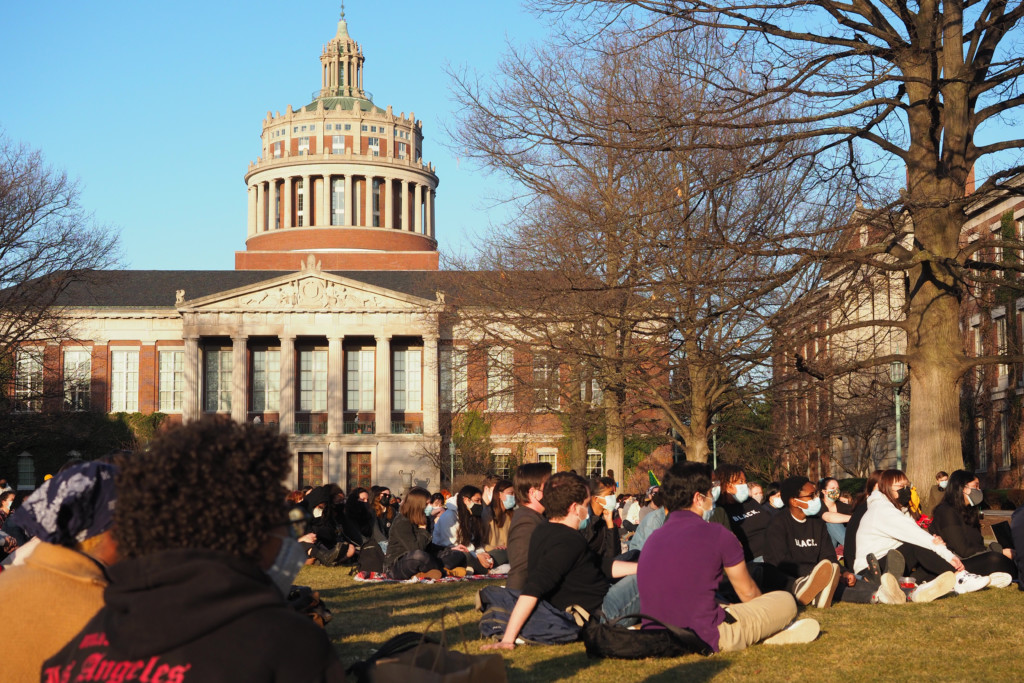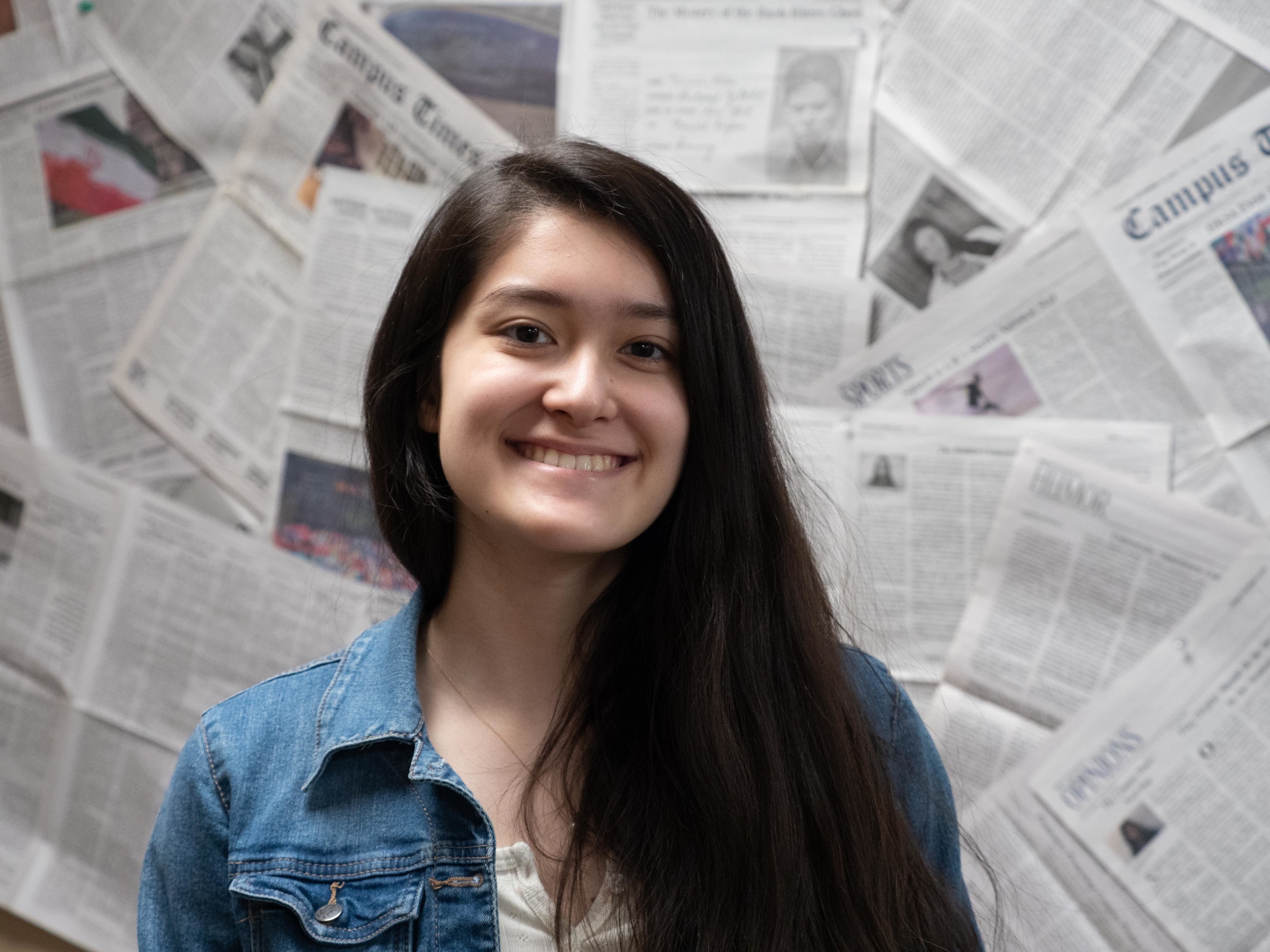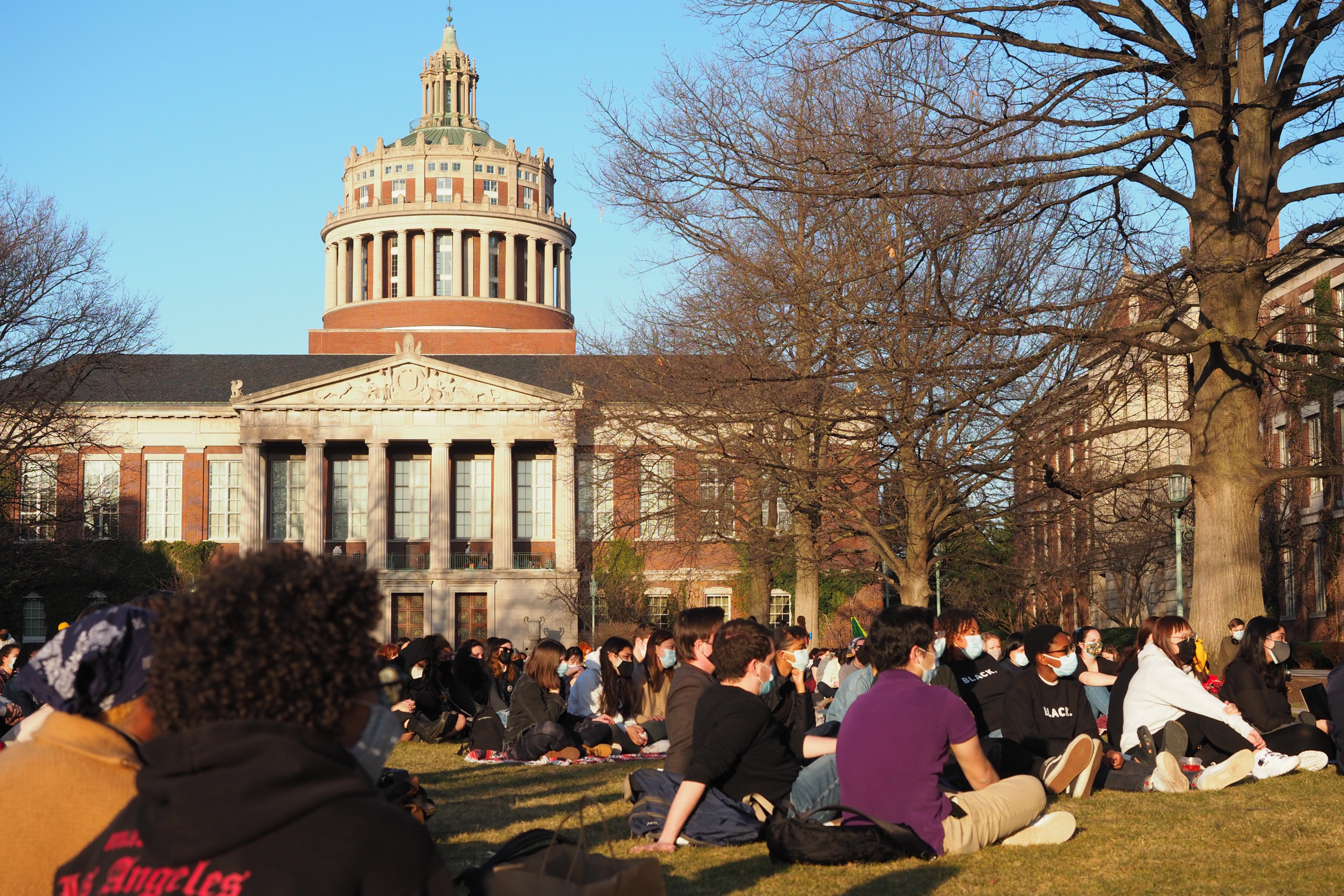My journey home at the start of the COVID-19 pandemic is easily the most terrified I’ve been about traveling. Aside from the shock of abruptly leaving the University, I’ll never forget the phone call with my parents when they told me they’d booked my flights.
Growing up in the San Francisco Bay Area, I was fortunate to live someplace where I never stood out for being half Asian. While looking at colleges, one of the factors I considered was finding somewhere I could still blend in, and I was lucky to have that experience at UR.
After anti-Asian violence and rhetoric surged at the start of the pandemic, though, it was harder not to be conscious of the implications of being Asian in America.
During that phone call, my parents talked to me about being careful when I traveled — not just because of the pandemic, but because of my race. It was the first time I’d felt scared about racism in a way that hadn’t seemed distant from my reality.
What most disturbed me was that, for a split second, I felt a tinge of relief knowing the last name on my passport was white. It was this awful, intrusive thought that tried to comfort me in situations where I was confronted with my Asianness instead of being made complete by it. It was a thought that told me that as long as I looked white enough and there was nothing to prove I was Asian, I’d be safe to return home without any confrontations.
Although some people can immediately tell that I’m Asian, there’s an undeniable privilege in knowing that passing as white is even an option for me. While I have had moments like last March where I’ve felt fear because of my race, I’ve never been racially discriminated against, and that’s something I don’t take for granted.
Reflecting on my own circumstances — especially as a number of violent anti-Asian hate acts have occurred recently — has made me question how the model minority stereotype has distorted the public conception of being Asian in America.
In a lot of ways, the model minority myth has been used to minimize the hardships Asians go through. My grandpa — a U.S. citizen — was forced into a Japanese internment camp as a teenager, and although times have changed since he was young, there’s still a long history of anti-Asian sentiment in the U.S. that the model minority myth glaringly overlooks.
The model minority myth has also normalized the notion of proximity to whiteness in a similarly harmful way. Proximity to whiteness doesn’t exclude Asians from oppression and — from the perspective of someone who’s half white — is really only a privilege if you’re partially white.
Even then, there are still nuances to being multiracial, and it’s hard to generalize a singular biracial experience. My brother has darker hair and more conventionally Asian facial features than me. Even though we have the same parents, slight variations in how we look could affect how some people treat us.
Unless you visibly appear to be white, you won’t be treated as such — and while this doesn’t guarantee you’ll be treated worse, race is something that inherently shapes people’s identities. Because every race has its own history in America, an issue with how proximity to whiteness is often interpreted is that it nearly erases important distinctions between people’s experiences.
To me, these distinctions, though often a source of friction in America, are simultaneously what endow this country with potential. I don’t think the U.S. is anywhere close to perfect right now, but I appreciate that there’s a lot of good in it. I don’t think my relatives — nor so many other Asian-Americans — would’ve fought so hard to be here if they didn’t see that, too.
As someone who’s only half Asian, I’ve never wanted to take up room in conversations that haven’t felt like my place, and my experiences aren’t necessarily comparable to what most Asians in America go through. But I do know that — especially after I’ve felt the Asian community hurting over a country we simply want to be a part of — the Asian half of me is not something I’ll ever choose to hide.



